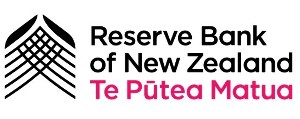
by Eric Frykberg

The Reserve Bank (RBNZ) has been told implementing Debt Servicing Restrictions (DSRs) on borrowing would be a good thing.
The best known DSR is a Debt to Income (DTI) ratio, which explicitly links borrowing capacity to a person's earnings.
Adoption of DTIs could put a further restraint on brokers trying to arrange a mortgage for their clients.
A nod of approval for mechanisms like DTIs has come in the latest report on New Zealand from the OECD.
The RBNZ in November sought industry comment on the merits and design of a DSR system. The deadline for submissions closed at the end of January.
In calling for industry opinion, the RBNZ said it had no plans to actually implement DSRs but wanted to have them available in case of financial instability.
In a comment on this proposal, the OECD listed several reasons for DSRs to be adopted.
It said they could augment already-existing controls on high Loan to Value Ratio (LVR) lending.
“These restrictions, if introduced, would potentially limit further debt increases as house prices rise, and protect borrowers from the risk of becoming unable to service their debt,” the OECD wrote.
“They would complement Loan-to-Value Ratio restrictions, which protect banks from losses in case of large declines in house prices.”
This would boost the resilience of the whole financial system, and the OECD cited an instance in Norway where mortgages were restricted to five times the gross annual income of borrowers.
The RBNZ is looking at two kinds of DSR. An alternative to the DTI ratio would target so called debt serviceability rules. These require a borrower to give an assurance that loans could be paid if interest rates rise significantly. Banks sometimes reduce this number for valuable clients, and the RBNZ is considering putting a floor under the debt serviceability number to stop this from happening.
In a further comment on this, the OECD said a DTI cap could take six to nine months to implement, but putting a floor under the serviceability number could be done sooner.
And it remarked that a DTI limit would bite most on investors, but changing debt serviceability rules would affect low income households more.
| « Common approach by banks to loans might be nice but hard to achieve off – bank executives | Vincent Capital adds a South Island BDM » |
Special Offers
No comments yet
Sign In to add your comment

© Copyright 1997-2026 Tarawera Publishing Ltd. All Rights Reserved